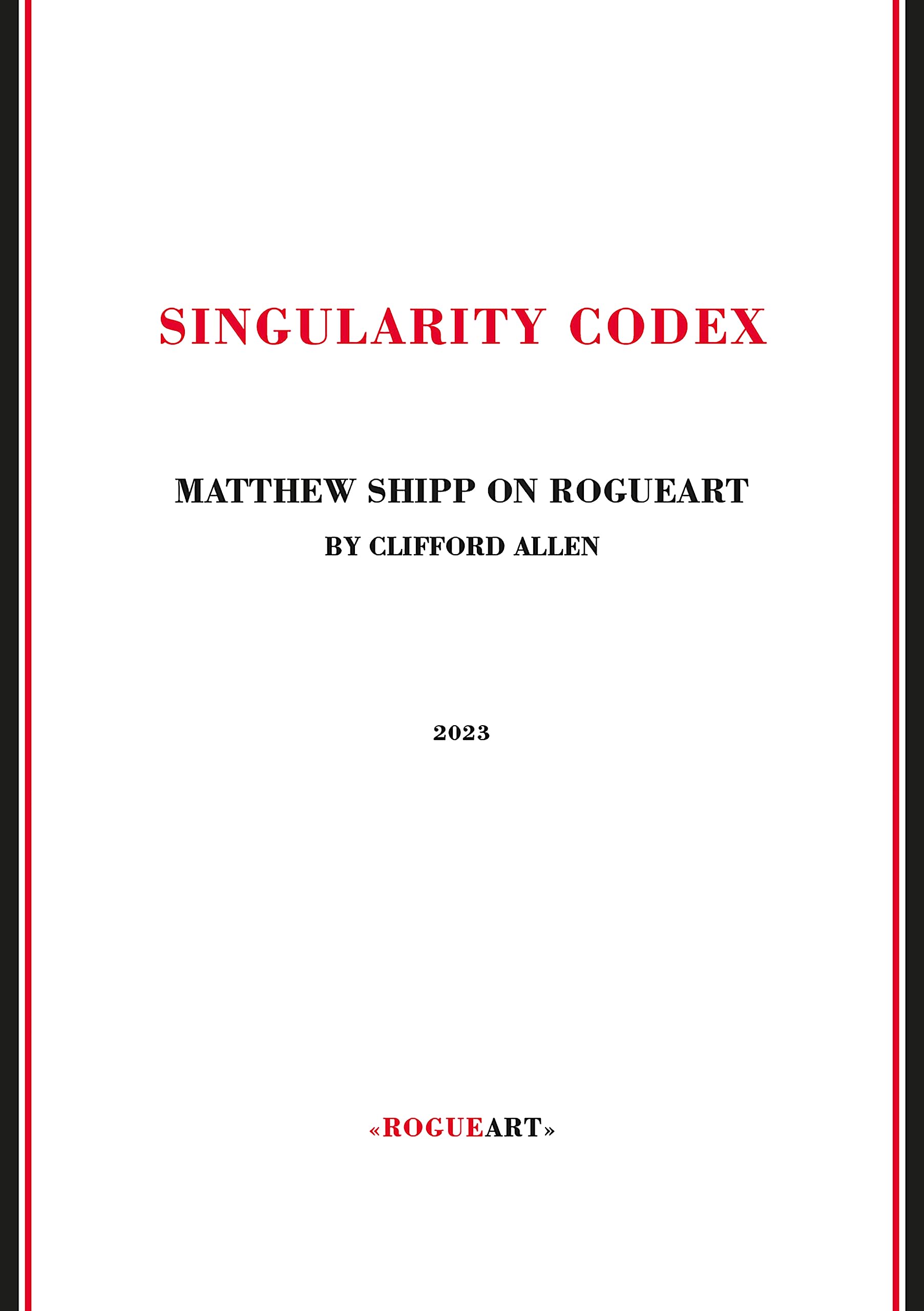There has always been a dearth of quality writing on free jazz. Many mainstream jazz critics fundamentally have not understood the music and have distorted its reception, while in academia the music has often been shunned by conservative music programs. But in recent years, there have been a number of important books addressing some of the music’s chief architects such as Lawrence Kumpf’s Organic Music Societies (2021) on multi-instrumentalists Don Cherry and Moki Karlsson, Henry Threadgill’s autobiographic, Easily Slip into Another World (2023), various books put out by the press Blank Forms, the recent collaboratively edited volume, A Mind-Body Deal (2023), on multi-disciplinary artist and scientist, Milford Graves, and my biography of bassist William Parker, Universal Tonality (2021). Critic and archivist Clifford Allen has offered us an insider’s view on the great pianist and composer Matthew Shipp with Singularity Codex: Matthew Shipp on Rogueart (Rogue Art, 2023).
In many ways, this book seems a long time in coming. Allen has been writing and analyzing the New York music scene for over twenty years and has conducted many key and singular interviews with the music’s founders and luminaries. His contributions have shed light on many developments and his archivist’s eye for detail has made this body of work historically vital. I have found myself citing his interviews often in my own work. So, to simply say, Allen seems the natural person to write this book. He was there, he personally witnessed these years, and he brings his own vast knowledge to this book’s analysis. The book opens explaining Allen’s relationship with the music itself, then he offers an essay about the music scene that Shipp first stepped into in the mid-1980s and upon which he soon had a transformative impact both in the David S. Ware Quartet as well as leading his own groups. Shipp has been one of New York’s preeminent jazz artists, performers, and thinkers over the past forty years having produced a monumental body of work. Allen’s writing is concise, exacting, and perceptive throughout.
The book then turns, appropriately, to a series of interviews with the people who know Shipp best: longtime collaborators and colleagues such as Parker, saxophonist Rob Brown, drummer Whit Dickey, guitarist Joe Morris, and poet Yuko Otomo. This multivalent window into Shipp’s work does wonders as each interview focuses in on a different aspect of Shipp’s career. Brown, Dickey, and Otomo have not been interviewed enough elsewhere, so these perspectives open up a fresh dialog on Shipp and the music that he has been a part of over the past forty years. The chapter “Linguistic Electric” takes this to full conclusion as it considers Shipp’s use and evolution of language–and indeed, energy–in his work, a perceptive and unexplored pathway into the artist’s inner thinking. The interview with label owner Michel Dorbon lays out the origins of Rogue Art itself and his motivations for starting and continuing the label. As he indicates, Shipp was central to the vitality of the label and one of the principal artists about whom the label focused over the years. Dorbon speaks with a kind of European directness often lacking in interviews with Americans which gives the reader a clear idea of his motivations, his social and political perspectives, and his relationship to and interest in Black music. Allen has crafted a well-balanced narrative here, with Shipp’s voice ever-present throughout, in different ways. The first ten chapters together give us firm footing to finally turn to considering Shipp’s recorded work that has appeared on the Rogue Art label.
Finally, the recordings. The last two-fifths of the book examine, step by step, the recordings that Rogue Art has documented of Shipp both as a leader, co-leader, and sideperson. All told, twenty-five records are given proper attention including background, conceptual details, technical aspects, and impact in the development of the singular American artist, Matthew Shipp and his peerless catalog of work on this label working with an array of figures including Brown, Parker, Morris, Dickey, Sabir Mateen, Gerald Cleaver, Marshall Allen, Evan Parker, Michael Bisio, Roscoe Mitchell, Jemeel Moondoc, Mat Maneri, Newman Taylor Baker, Nicole Mitchell, Nate Wooley, John Butcher, Thomas Lehn, Paul Dunmall, Mark Helias, Steve Swell, Kirk Knuffke, and Ivo Perelman. This book is a very important contribution to our understanding of not only Shipp, but the world he has worked within and upon which he has had a tremendous impact. We can hope that this is the first book on Shipp and that it will inspire others to follow.

